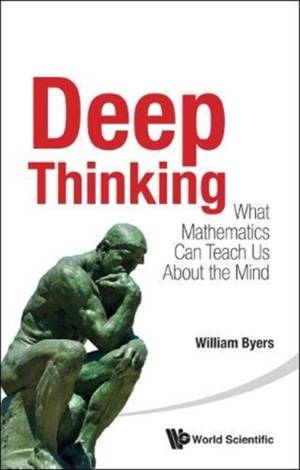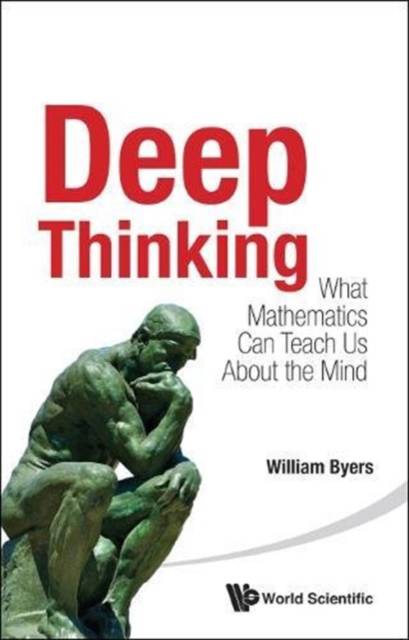
- Retrait gratuit dans votre magasin Club
- 7.000.000 titres dans notre catalogue
- Payer en toute sécurité
- Toujours un magasin près de chez vous
- Retrait gratuit dans votre magasin Club
- 7.000.0000 titres dans notre catalogue
- Payer en toute sécurité
- Toujours un magasin près de chez vous
42,95 €
+ 85 points
Description
There is more than one way to think. Most people are familiar with the systematic, rule-based thinking that one finds in a mathematical proof or a computer program. But such thinking does not produce breakthroughs in mathematics and science nor is it the kind of thinking that results in significant learning. Deep thinking is a different and more basic way of using the mind. It results in the discontinuous "aha!" experience, which is the essence of creativity. It is at the heart of every paradigm shift or reframing of a problematic situation.The identification of deep thinking as the default state of the mind has the potential to reframe our current approach to technological change, education, and the nature of mathematics and science. For example, there is an unbridgeable gap between deep thinking and computer simulations of thinking. Many people suspect that such a gap exists, but find it difficult to make this intuition precise. This book identifies the way in which the authentic intelligence of deep thinking differs from the artificial intelligence of "big data" and "analytics".Deep thinking is the essential ingredient in every significant learning experience, which leads to a new way to think about education. It is also essential to the construction of conceptual systems that are at the heart of mathematics and science, and of the technologies that shape the modern world. Deep thinking can be found whenever one conceptual system morphs into another.The sources of this study include the cognitive development of numbers in children, neuropsychology, the study of creativity, and the historical development of mathematics and science. The approach is unusual and original. It comes out of the author's lengthy experience as a mathematician, teacher, and writer of books about mathematics and science, such as How Mathematicians Think: Using Ambiguity, Contradiction, and Paradox to Create Mathematics and The Blind Spot: Science and the Crisis of Uncertainty.
Spécifications
Parties prenantes
- Auteur(s) :
- Editeur:
Contenu
- Nombre de pages :
- 264
- Langue:
- Anglais
Caractéristiques
- EAN:
- 9789814618038
- Date de parution :
- 14-11-14
- Format:
- Livre broché
- Format numérique:
- Trade paperback (VS)
- Dimensions :
- 150 mm x 226 mm
- Poids :
- 376 g

Les avis
Nous publions uniquement les avis qui respectent les conditions requises. Consultez nos conditions pour les avis.






